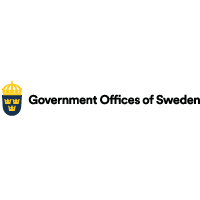
The Government adopted amendments to the temporary ban on entry into Sweden. The amendments primarily mean that people who can present a vaccine certificate issued in certain specific countries and territories are exempted from the entry ban. The decision also means that the ban will be reintroduced for entry from a number of countries in accordance with the Council of the European Union’s updated recommendations for travel to into EU Member States. Certain amendments have also been made to make the entry ban rules more uniform and to simplify the entry process for both travellers and border police.
The temporary entry ban came into force on 19 March 2020 and initially applied for 30 days. It has subsequently been extended on several occasions, and under the latest such decision, the entry ban now applies until 31 October 2021.
The entry ban means that a foreign citizen departing from a state other than an EEA State or Switzerland travelling to Sweden will be denied entry into Sweden and turned away. There are a number of exemptions from the ban, but travellers are normally required to present a negative COVID-19 test result even if they are covered by one of the exemptions.
Vaccination certificates issued by certain countries outside the EU/EEA
The Government’s decision means that people travelling to Sweden who can present a vaccination certificate issued in North Macedonia, San Marino, Switzerland, Turkey, Ukraine or the Vatican City are exempt from the entry ban and test requirement. According to a European Commission decision, vaccination certificates issued in these countries are equivalent to the EU Digital COVID certificate, which means that such certificates can be checked and verified in the same manner and using the same technical systems as the EU certificate. Additional countries, including the United Kingdom, are awaiting a decision from the European Commission in the near future. The intention is to continuously add more countries to the Swedish rules following Commission decisions. The Government will provide information about this on an ongoing basis.
As a result, travel to Sweden from countries outside the EU/EEA will now be easier. At the same time, the Government will continue to monitor the situation and retain the test requirement for travellers from other countries outside the EU/EEA. This is due to the continued uncertainty concerning infection rates and transmission of particularly significant variants of the virus, and taking into account the difficulties in checking and verifying the wide range of different vaccination certificates that these travellers may present. This should be considered a step in the successive and responsible reopening of travel to Sweden for vaccinated people from other countries.
The EU Digital COVID Certificate for travellers from third countries and extended time limit for negative test results
Under this decision, travellers from third countries who can present the EU Digital COVID Certificate will also be exempt from the test requirement, which means that the entry restrictions are the same for travel from countries inside and outside the EU/EEA. This simplifies the entry process for both travellers and border police.
To make it easier for long-distance travellers and to make the entry ban rules more uniform, the decision also includes an extension of the time limit for a negative COVID-19 test that people travelling to Sweden from countries outside the EU/EEA who are covered by any of the exemptions from the entry ban must present to enter the country. The decision means that the test must not be older than 72 hours upon entry. This requirement applies to foreign citizens aged 18 and older, with certain exemptions.
Amendments to the entry ban for people residing in certain countries
Finally, the Government has decided that Albania, Armenia, Azerbaijan, Brunei, Japan and Serbia will be removed from the list of countries where residents are generally exempt from the entry ban solely on the ground that they reside there, while Uruguay will be added to the list. The decision applies as of 20 September. This means that the entry ban will be reintroduced for people residing in the countries removed from the list, while people residing in Uruguay will generally be exempt from the entry ban. Other exemptions from the entry ban will also continue to apply to people who reside in those countries. These amendments are the result of an update of the EU recommendations regarding travel into the EU from third countries adopted on 9 September 2021, based on information from the European Centre for Disease Prevention and Control (ECDC).
The amendments enter into force on 20 September 2021.
For more information on how the ordinances on a temporary ban on entry to Sweden are to be interpreted and which exemptions apply, please visit the Swedish Police Authority website. See the adjacent links.